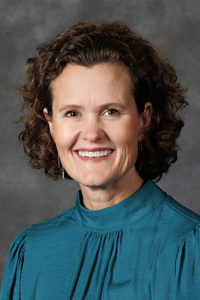Vape registry, online sales ban proposed
The General Affairs Committee heard testimony Feb. 5 on a bill that seeks to reduce access to vaping devices by minors in Nebraska.

LB1296, introduced by Seward Sen. Jana Hughes, would prohibit the sale of electronic nicotine delivery systems, or ENDS, that have not been approved by the U.S. Food and Drug Administration. Violations would be considered a deceptive trade practice under the Uniform Controlled Substances Act.
Devices that are pending approval from the FDA would be authorized for sale under the bill, but online sales of ENDS, regardless of FDA approval, would be prohibited.
Hughes pointed to the growing number of children using vaping devices as the catalyst for LB1296. According to an ongoing study conducted by the University of Michigan’s Institute for Social Research, she said, the No. 1 substance used by eighth and 10th graders is nicotine vape.
“We have a serious problem on our hands that threatens to undermine the progress made over the past 40 years in reducing the use of nicotine products by our kids,” Hughes said.
LB1296 also would create a directory of ENDS manufacturers who have received or sought FDA approval. Beginning April 1, 2025, each manufacturer would be required to register with the state tax commissioner and pay a $500 initial certification fee per device and $500 annually. Payments received would be directed to the state Department of Revenue to reimburse the cost of enforcing the bill’s provisions.
Speaking in support of the proposal was Nebraska Attorney General Mike Hilgers. He said children’s access to harmful vaping products has been one of the top concerns that he has heard from residents across the state.
“We know in Lincoln it’s been a big issue,” Hilgers said, “but frankly, I’m not sure there’s been a community that has been untouched.”
He added that the proposal is not intended to put the vape industry out of business, but rather to follow the FDA’s lead and draw a line that cuts off the means of distribution to children while also ensuring that products on the market remain safe.
“[LB1296] seems like a sensible line, a logical line and a defensible line,” Hilgers said.
David Sylvia also testified in support of the proposal. Speaking on behalf of tobacco producer Altria, he said local businesses have been losing customers to entities that are making and selling illicit products.
“The CDC estimates that about 50% of the e-vapor marketplace today in the United States consists of illicit products,” he said. “LB1296 will help us foster a regulated e-vapor marketplace … and help limit youth access.”
Speaking in support of the measure on behalf of Core-Mark, Kathy Gunlock said many responsible business owners do not realize the products they sell are out of compliance because the FDA does not publish a public list of ENDS that currently are pending approval.
“Most distributors in the state want to abide by the rules, we just need a mechanism to understand what products are legal for distribution and sale,” she said. “The product directory would provide wholesalers and retailers the much needed information so they can comply.”
Also speaking in support of the proposal was York Public Schools elementary principal, Kathryn Burger. Speaking on behalf of the school district, she said kids as young as elementary students have brought vaping devices to school grounds. Students are fascinated by something they aren’t supposed to have and don’t fully understand the dangers of vaping, she said.
“Even if we’re not directly marketing to these children, they will find them and they will be attracted to them,” Burger said.
Sarah Linden, president of the Nebraska Vape Vendors Association and owner of Generation V, testified in opposition to the bill. Over 30 vape manufacturers have sued the FDA over its application process, she said, which some courts have found to be “arbitrary” and “capricious.” LB1296 would eliminate “99.9% of all vapor products on the market” because of that flawed application process, she said.
“[This bill] proposes the state of Nebraska use their scarce resources to enforce a failed FDA regulatory scheme, declared illegal by the courts, to shut down hundreds of Nebraska small businesses,” Linden said.
Also testifying in opposition was Jacob Marktikainen, co-owner of E-Titan Vapors. He argued that removing certain products from the market would create an uncontrollable and unregulated black market instead.
Efforts by other states to ban flavored tobacco products and take them off the market have been unsuccessful, Marktikainen said. These products remain available through online chat rooms and black market dealers who do not enforce age verification policies in the way that legitimate vendors are required to do, he said.
The committee took no immediate action on LB1296.

